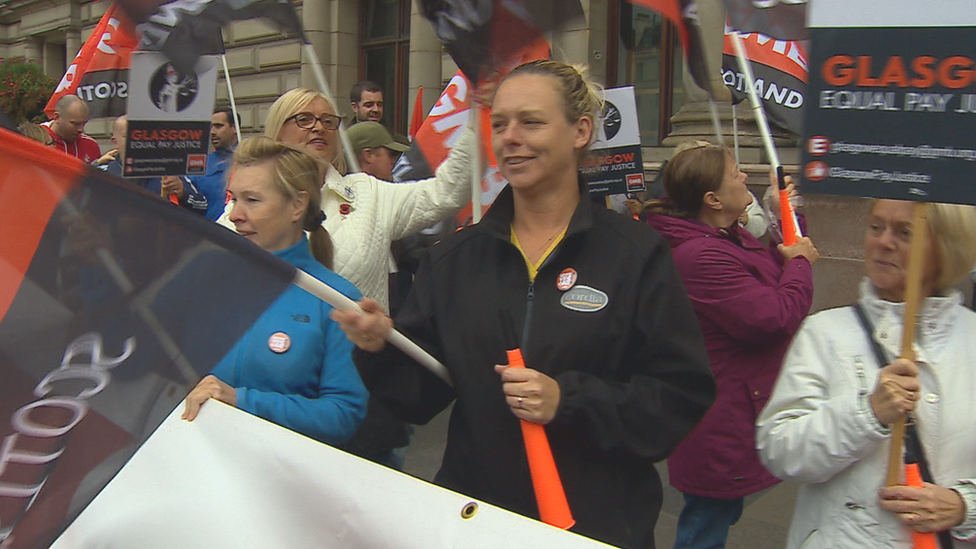Glasgow venues may be 'sold' to fund equal pay deal
- Published
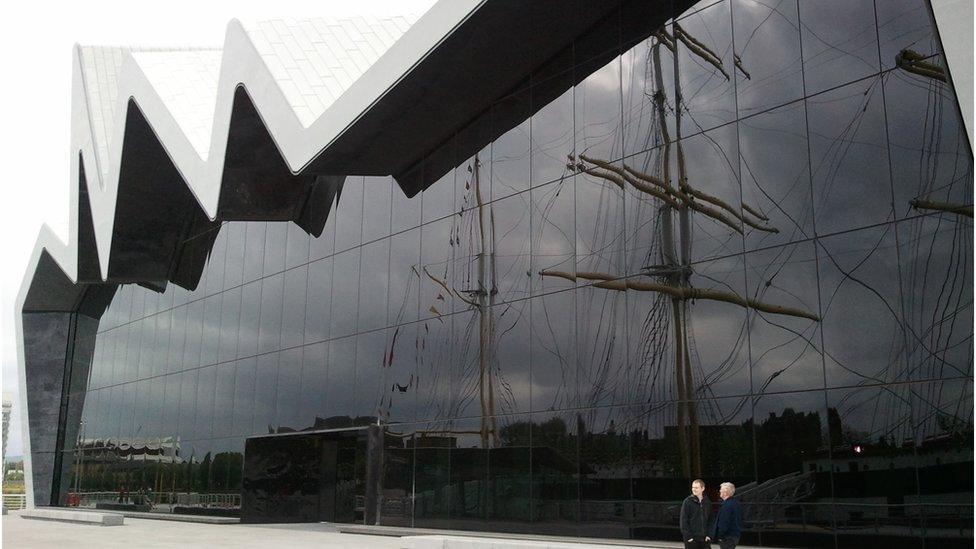
The Riverside Museum is one of the venues that could be sold and leased back by the council
Glasgow City Council's £548m equal pay settlement could be financed by "selling" off its most-popular venues to an arm's-length company.
A council report proposes transferring ownership to City Property Glasgow Investments LLP (CPGI) which would pay for them by taking out long-term loans.
Venues such as the Riverside Museum and the Emirates Arena would then be leased back to the council.
The cost of the lease would be designed to meet CPGI's loan repayments.
In January, the council agreed in principle to settle the equal pay claims of thousands of women going back more than a decade.
It has now published a report on how the council could finance the deal.
City Property Glasgow Investments LLP (CPGI), the arms-length company, is wholly owned by Glasgow City Council.
Council leader Susan Aitken said the sale and leaseback arrangement would "release the potential" of the property assets while keeping them in the city's ownership.
The council added that users would not see any difference in how they access venues on a day-to-day basis.
The paper will go before the council's City Administration committee on Thursday.

Which venues are being "sold"?
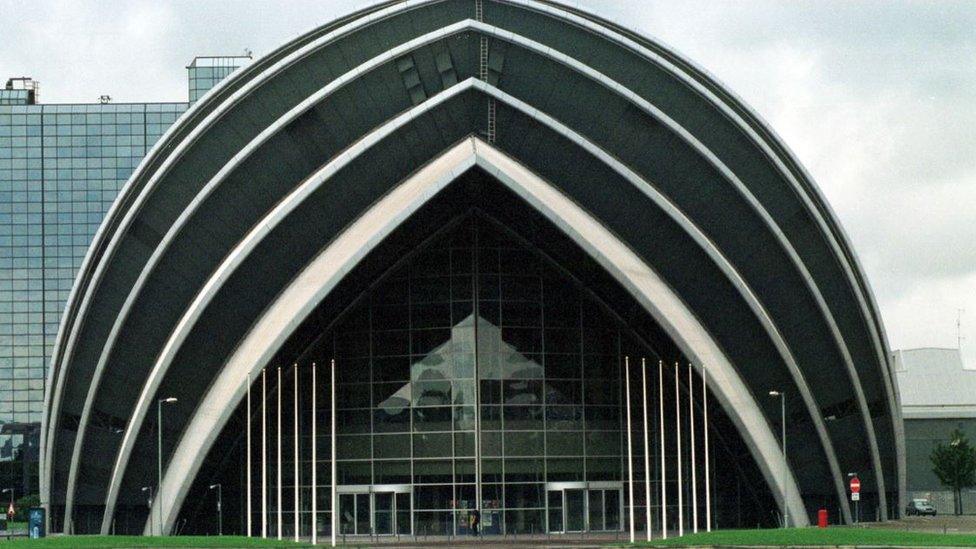
The SEC Armadillo (above), and the Royal Concert Hall are also assets of the City Council
Under proposals, the following venues would be transferred to the City Property portfolio:
Emirates Arena
Riverside Museum
SEC Armadillo
Scotstoun Leisure Centre
Tollcross International Swimming Centre
Glasgow Royal Concert Hall
Glasgow Museums Resource Centre
City Halls
Toryglen Football Centre
Gorbals Leisure Centre
Bellahouston Leisure Centre

Valued assets
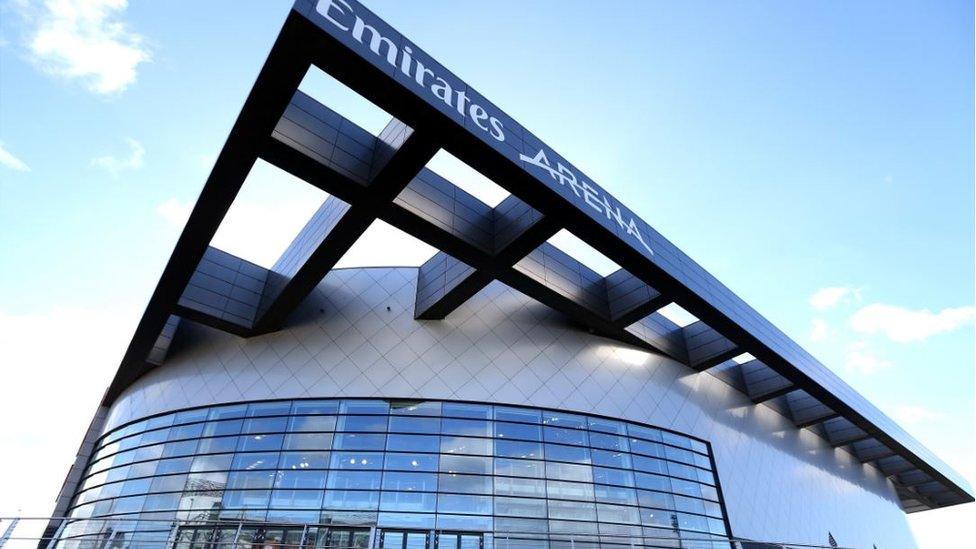
The Emirates Arena is one of the venues which could be transferred to an arm's-length company
The paper before the council next week also looks at refinancing a previous loan taken out in 2010.
Ms Aitken said: "I've always been clear that, although settling equal pay has been about delivering justice for thousands of the women in our workforce, meeting the substantial cost of doing that must be fair for citizens.
"Releasing the potential of our property, while keeping it in the city's ownership, protects services and the future of these valued assets."
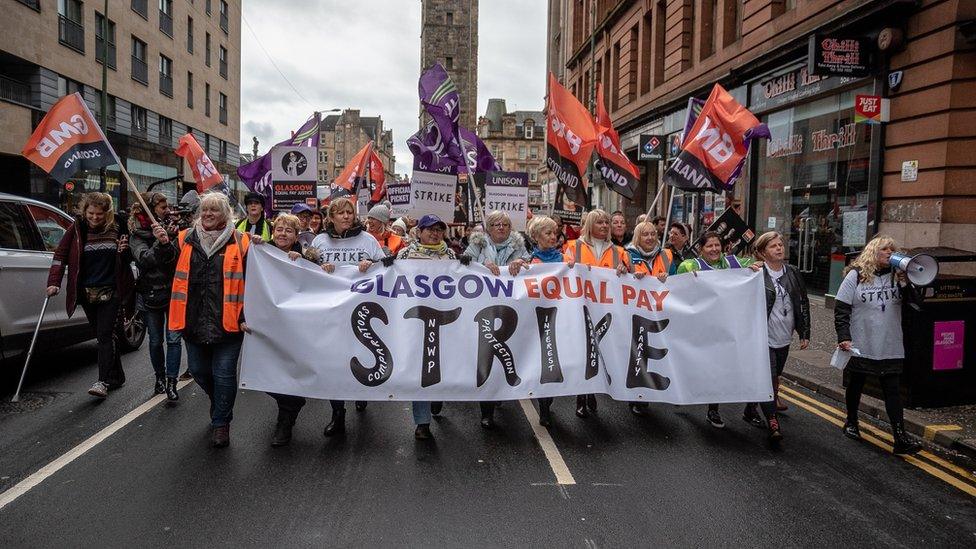
Thousands of council workers staged a two-day strike over the dispute last year
The council's massive equal pay settlement arose from an earlier attempt to eliminate gender pay inequality.
In 2006 Glasgow City Council adopted a job evaluation scheme with the aim of ensuring that men and women received equal pay for jobs of the same value.
However, campaigners claimed workers in traditionally female-dominated roles such as catering or home care were paid up to £3 an hour less than those in male-dominated jobs such as refuse workers or grave diggers.
Ms Aitken said the previous Labour administration "wussed out" of doing anything about the problem for more than 10 years while her own minority SNP administration, elected in May 2017, had "grasped the nettle".
She said: "I'm delighted that we have agreement with the claimants and to be able to recommend to my colleagues a deal that finally delivers pay justice for thousands of women in our workforce.
"After a decade going round in circles in the courts, we have reached a fair settlement through 12 months of tough but open and honest negotiations.
"This report is our opportunity to put right a wrong that has damaged the council, its workforce and the city for too long."
- Published18 January 2019
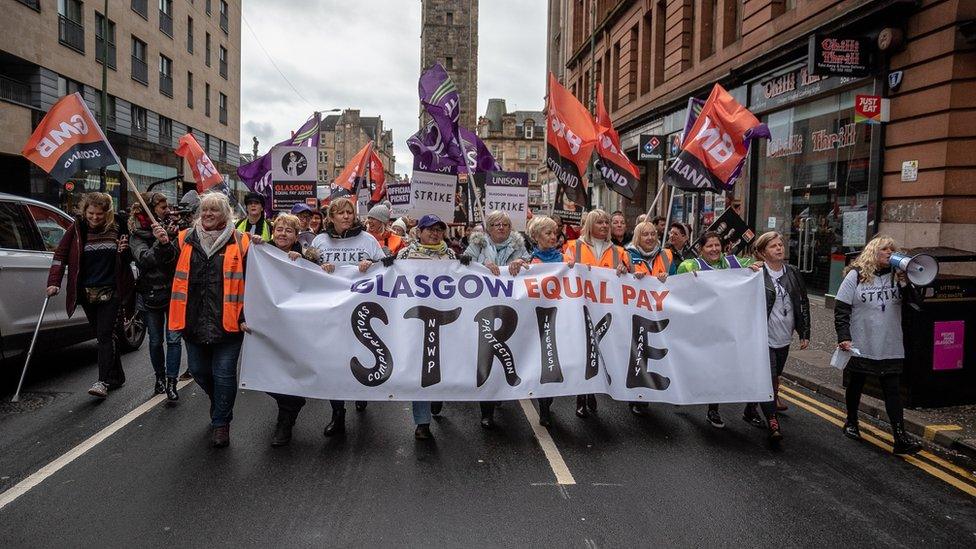
- Published13 September 2018
